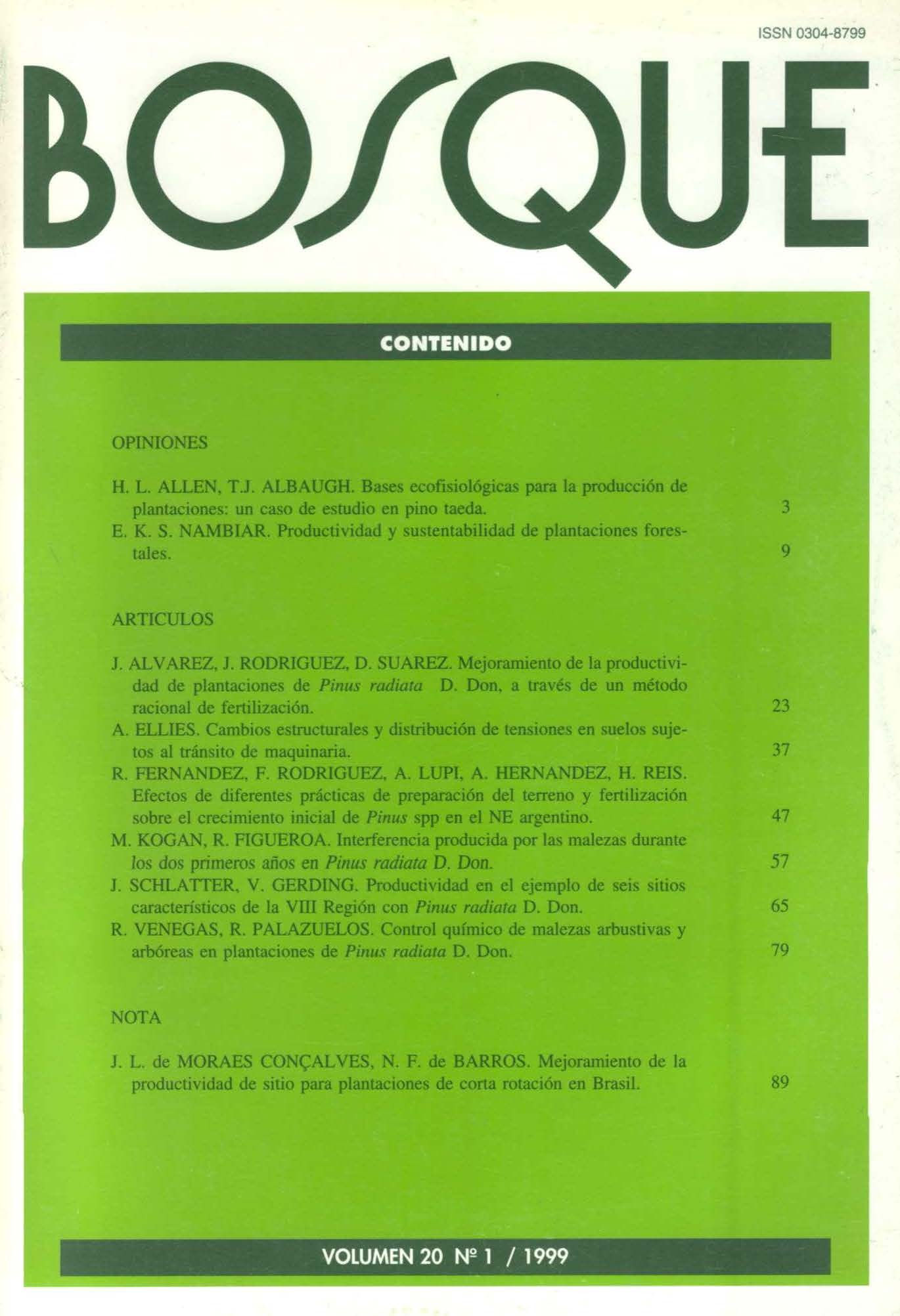Structure change and distribution of stress in soils submitted to wheeling with heavy machinery
Main Article Content
Abstract
Changes in the pore size system and stress distribution produced by transit of forest harvest machines in an Udivitrand, a Palehumult, and a Rhodoxeralf was determined, during different seasons. Stress distribution was determined by horizontally inserted transducers (in a pit) connected to a data logger. The physical and mechanical soil properties were determined on and between the tracks. The penetration depth of the pressure bulbs increases with soil water content. The increase was greater when the subsoil was wet. The concentration factor increases with soil moisture. With similar water content, coarse textured and structured soils presented a lower penetration of the pressure bulbs. Traffic in wet conditions with heavy machinery over a Palehumult or a Rhodoxeralf reduces coarse pores over 50%. With the increment of compaction, mechanical stability increases, presenting a greater bearing capacity and internal cohesion at the expense of coarse pores. With subsoiling a portion of coarse pores where recovered but the mechanical stability was very low for posterior traffic.

